Locals often call it the Rooster Church because the bell tower features a rooster (made of hollow alloy, rotating around an axis to indicate the wind direction). This is both a symbol of France (the Gallic rooster) and a symbol conveying messages of enlightenment, awakening, and peace from heaven to the inhabitants of the foggy city. (According to the Old Testament, the rooster is a symbol of wisdom from God).
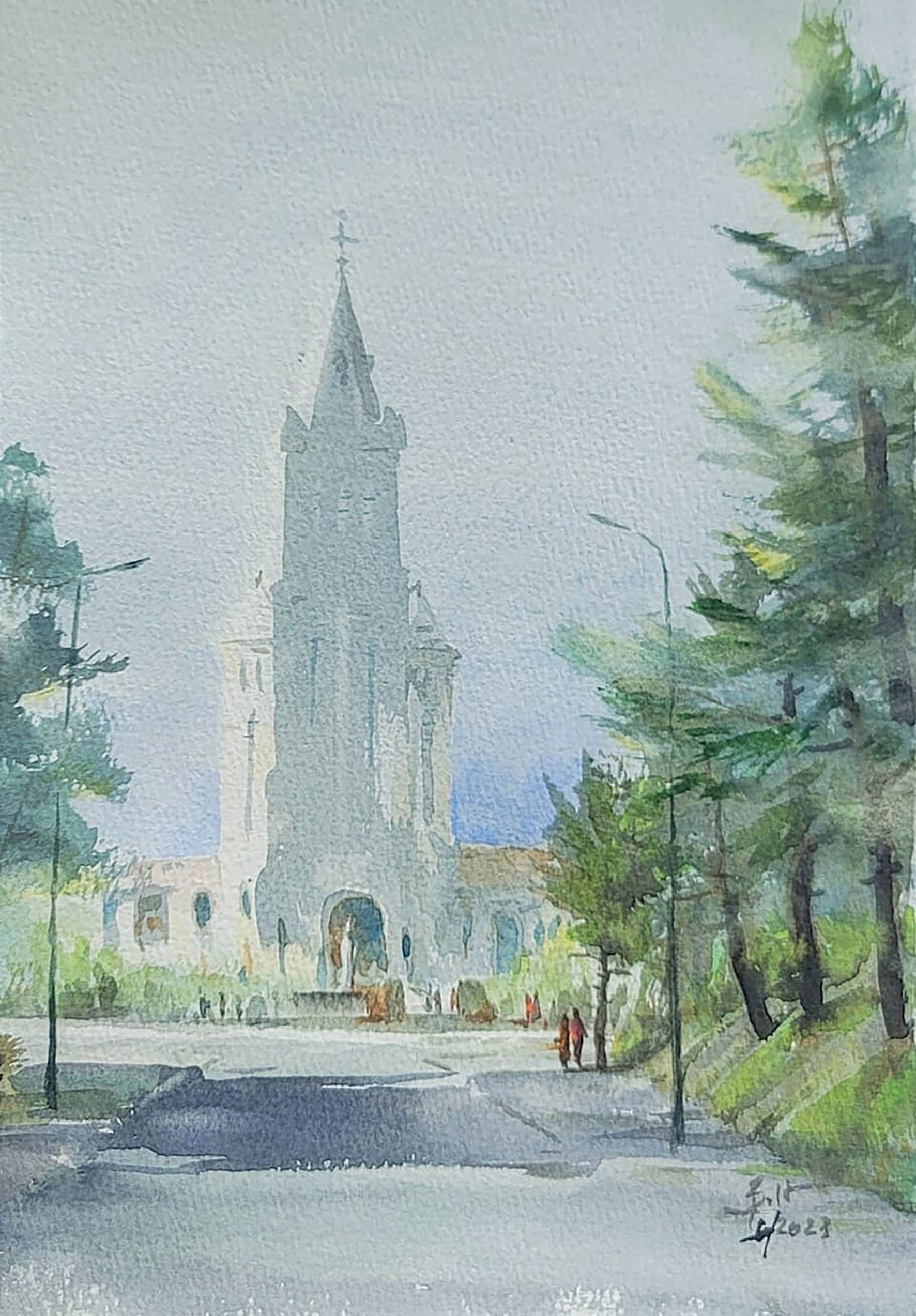
Sketch by architect Bui Hoan
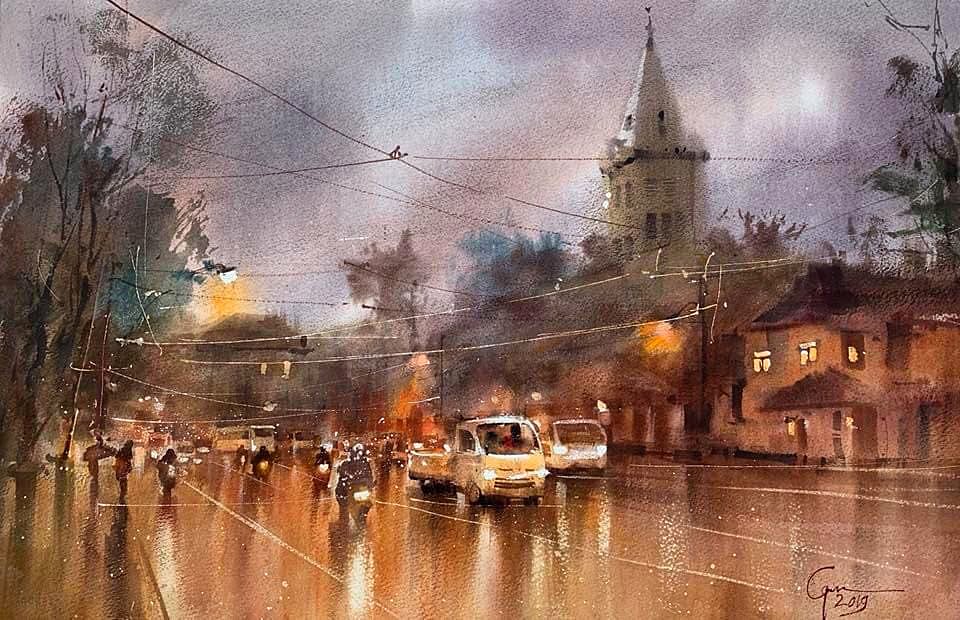
Sketches by artist Doan Quoc
In 1920, this place was just a nursing home and chapel for priests. The current church was started in 1931 and completed in 1942. The building's floor plan is in the shape of a cross, 65 meters long and 14 meters wide, with a bell tower 47 meters high.
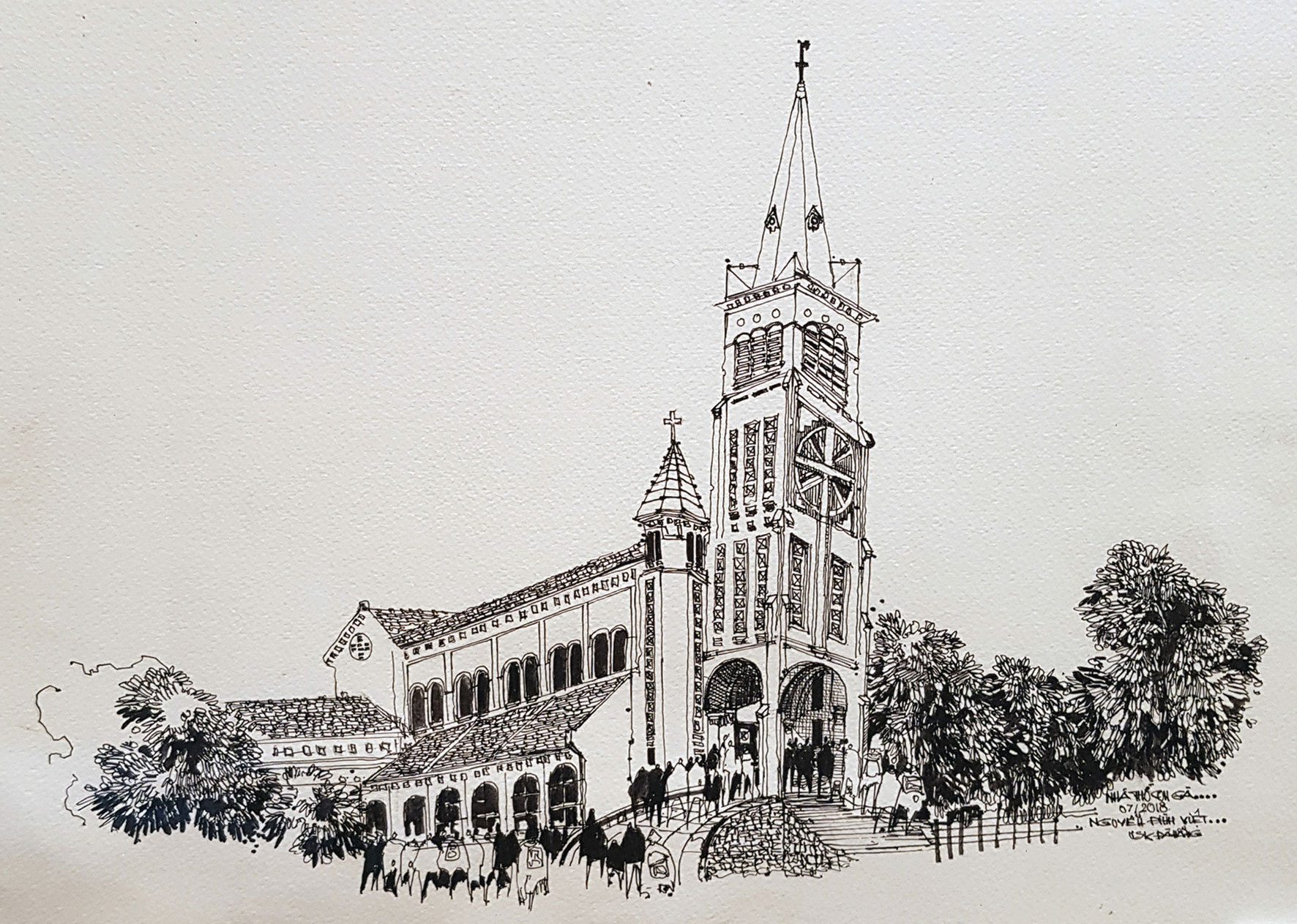
Sketch by architect Nguyen Dinh Viet
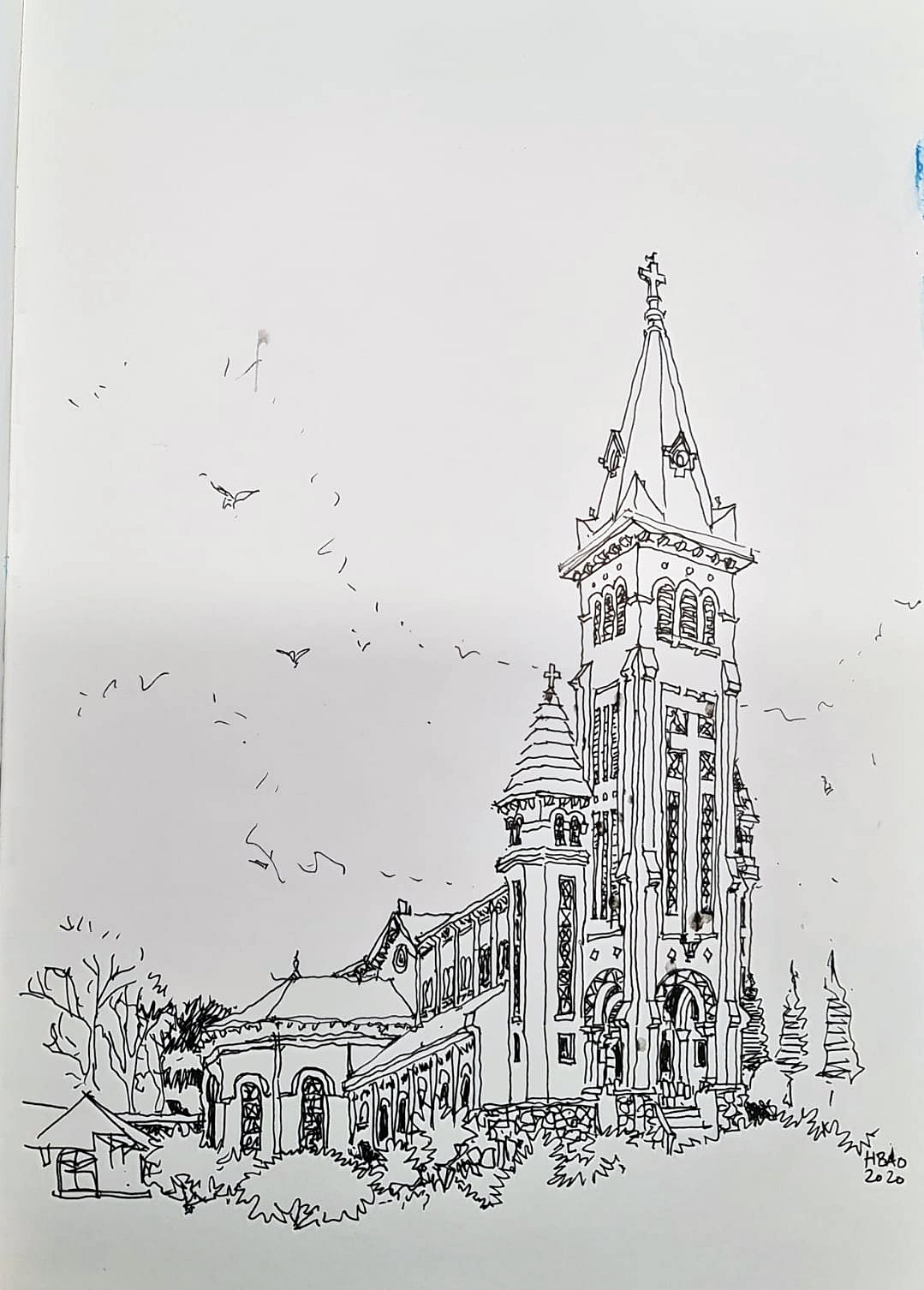
Sketch by architect Bui Hoang Bao
The church is built in the style of European churches of the Romanesque architectural school (*). The church's width is divided into three bays, with the central bay being wider and taller. The windows have rounded arches, harmonious proportions, and minimal decorative elements. The main entrance faces Langbiang Mountain. Along the church walls are 14 bas-reliefs depicting the Passion of Jesus Christ. Natural light shines through 70 stained-glass windows, creating magical, colorful spaces.
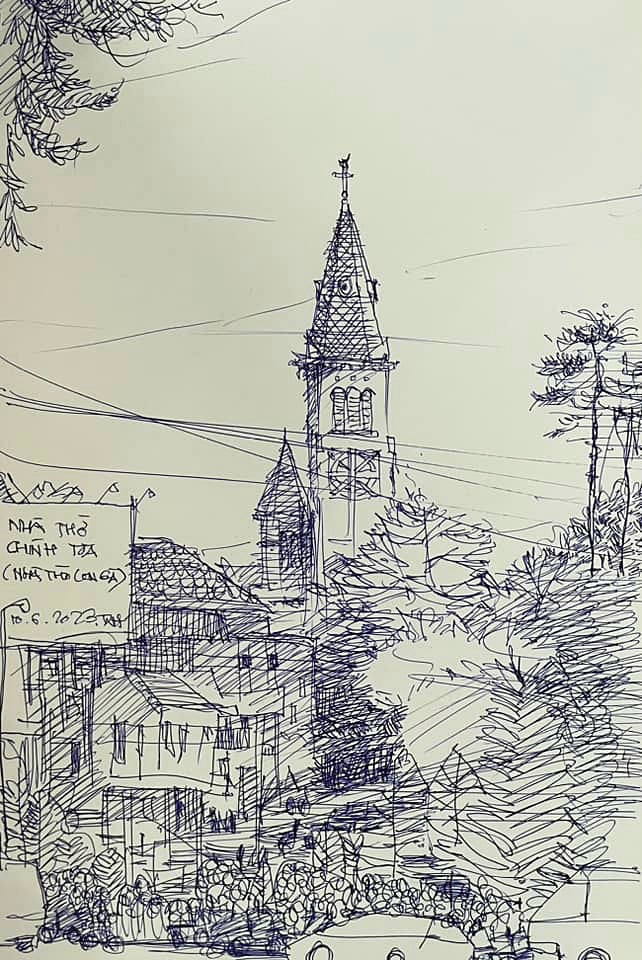
Sketches by architect Xuan Hong
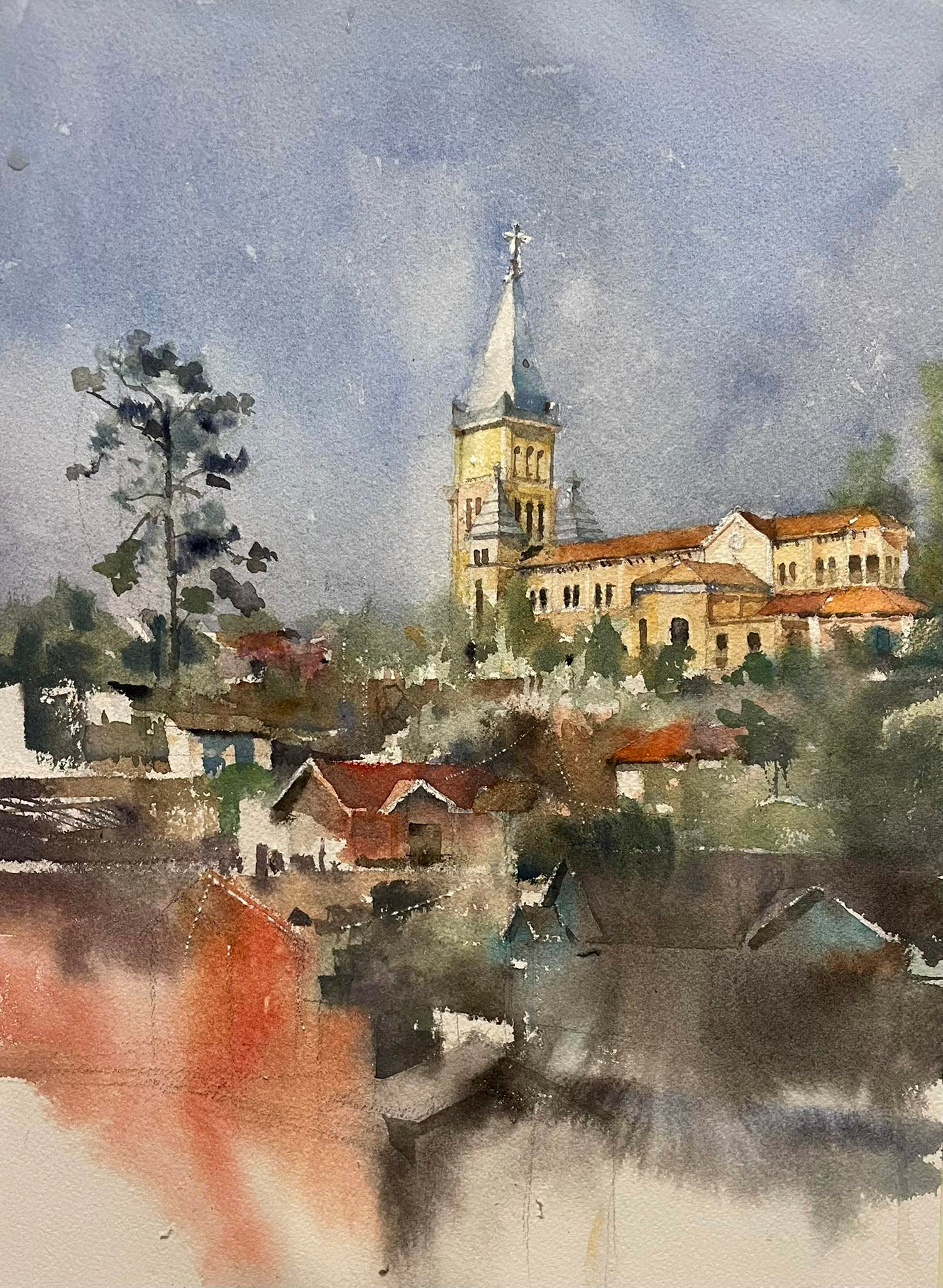
Sketches by architect Dang Phuoc Tue
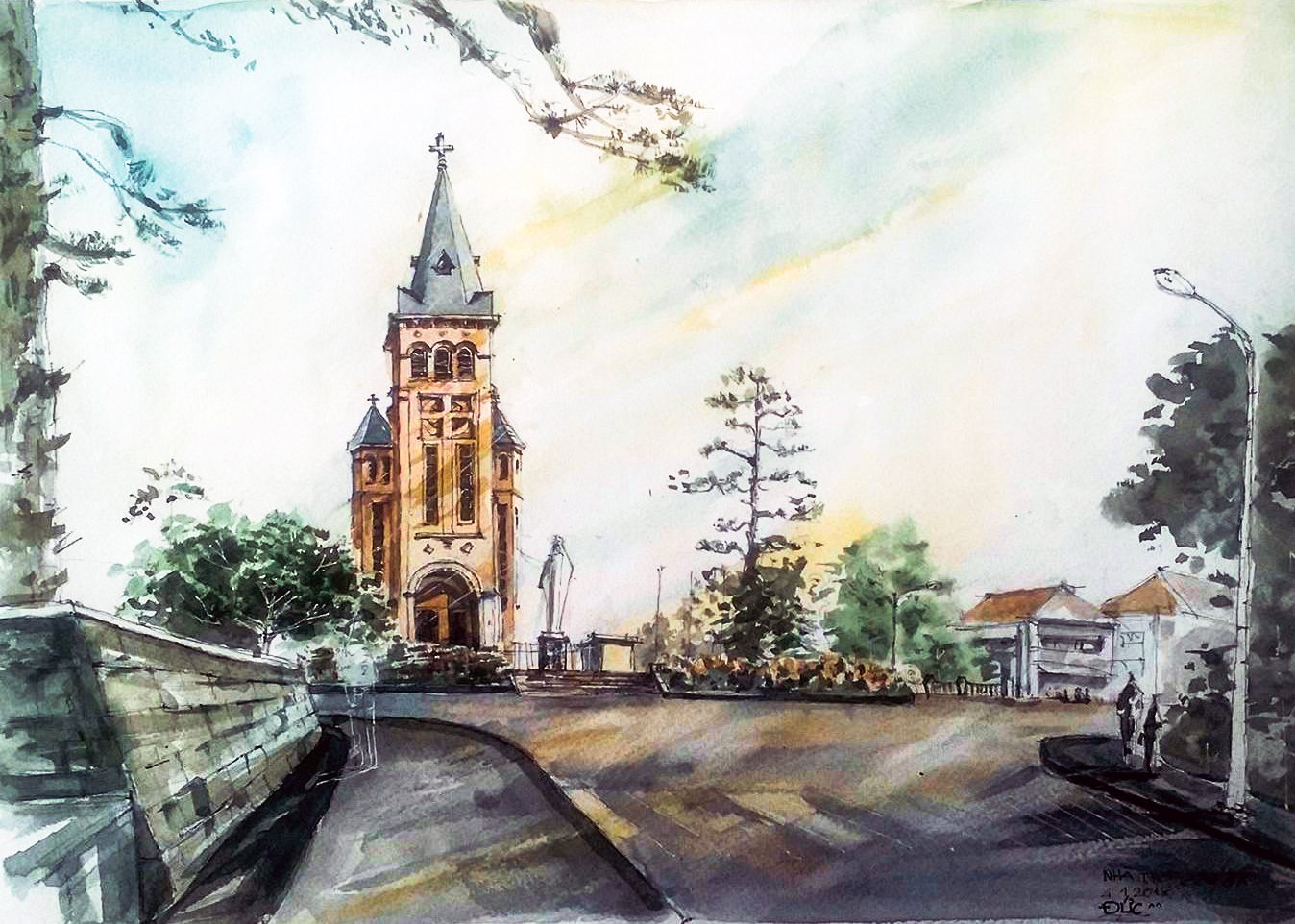
Sketch by architect Pham Minh Duc
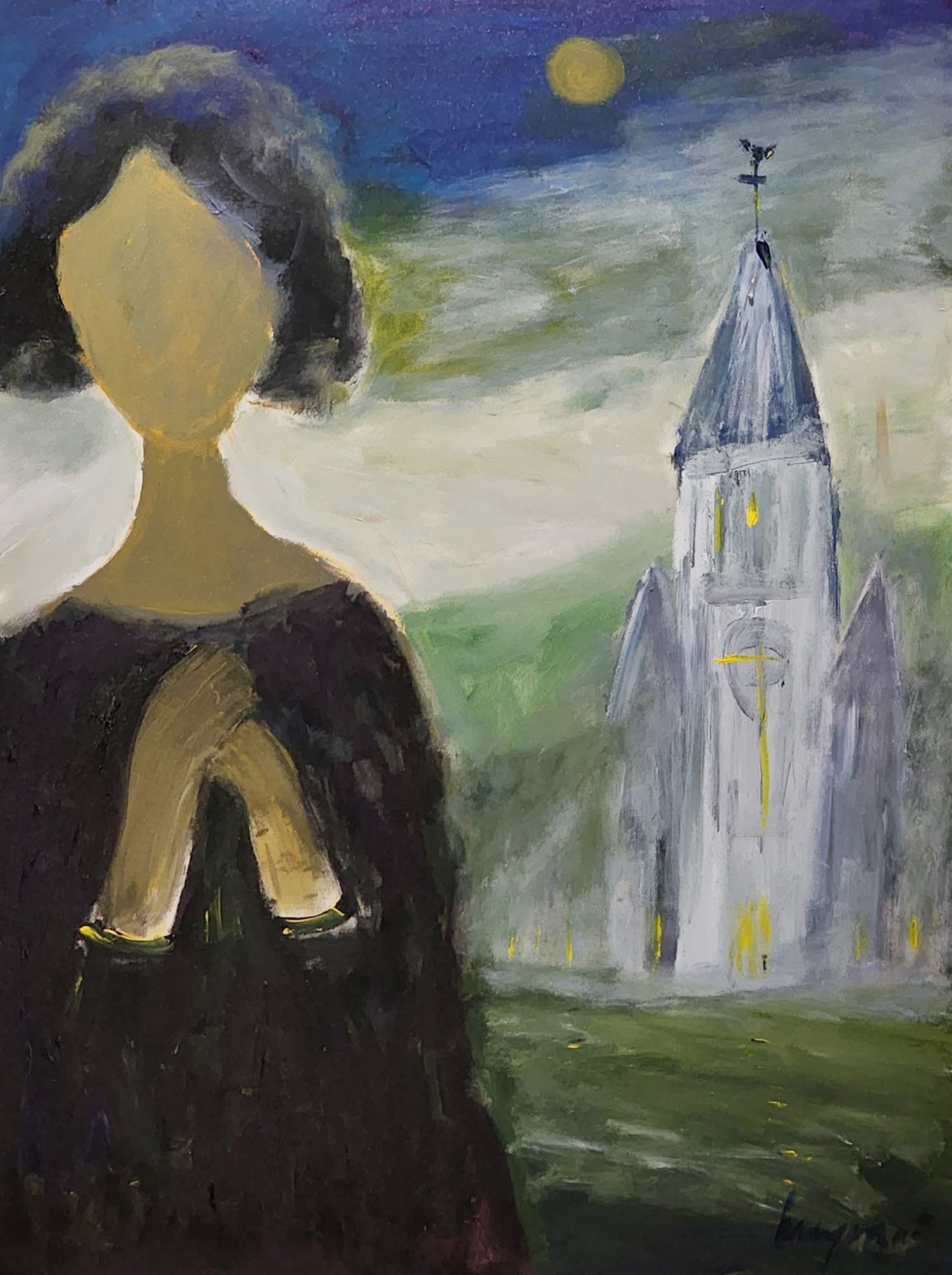
Sketch by architect Phung The Huy
In addition, the famous song "Bài thánh ca buồn" (composed by musician Nguyễn Vũ in 1972) also takes its setting from the Rooster Church.
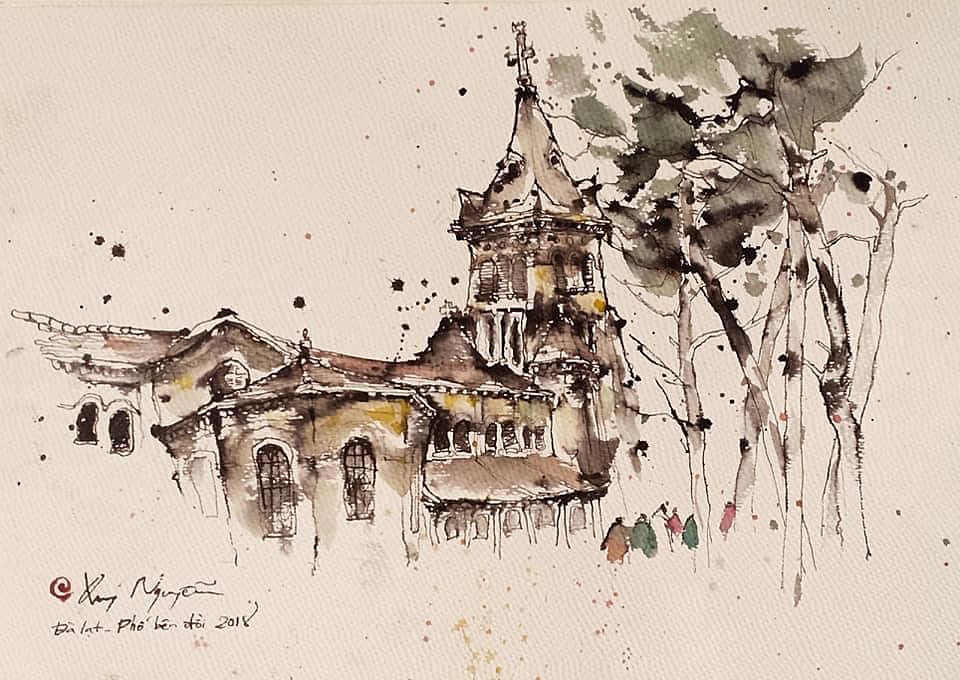
Sketch by architect Quy Nguyen
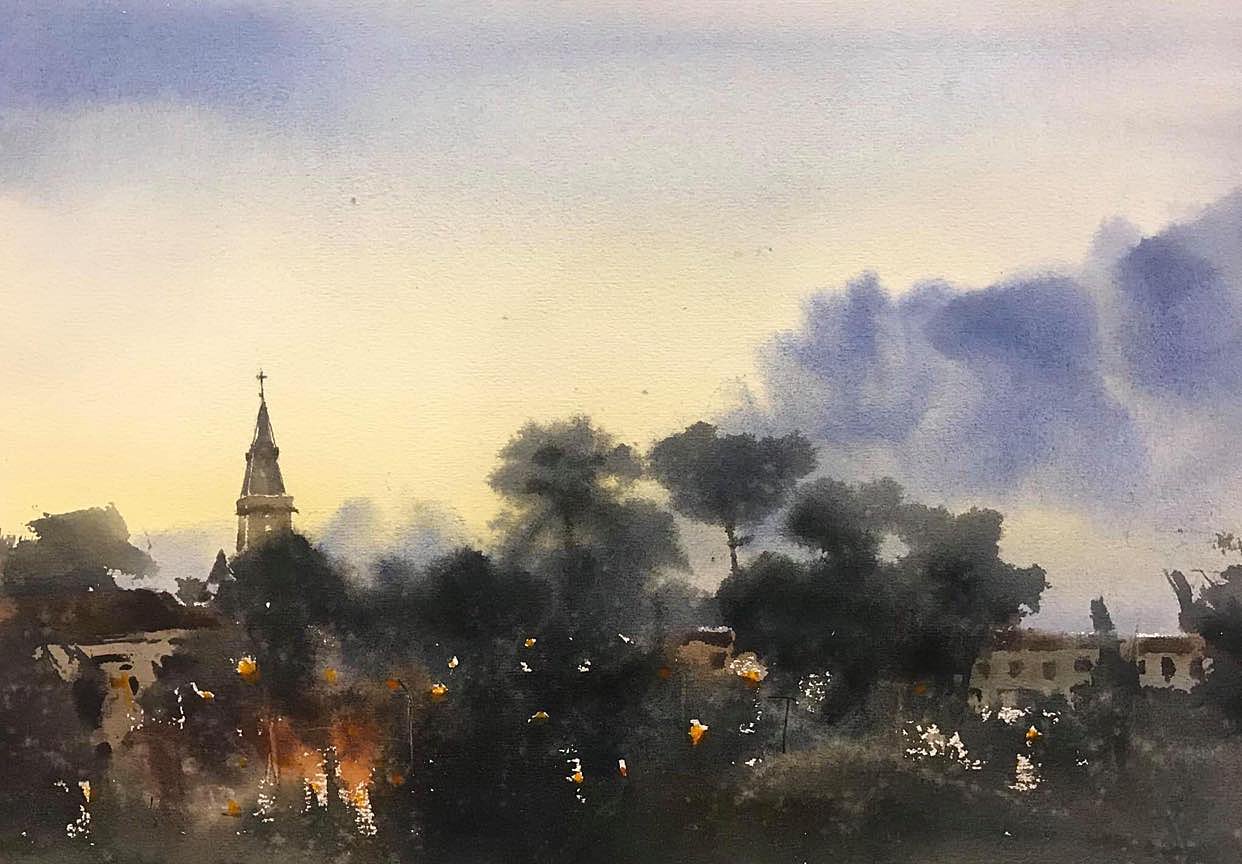
Sketches by artist Ho Hung
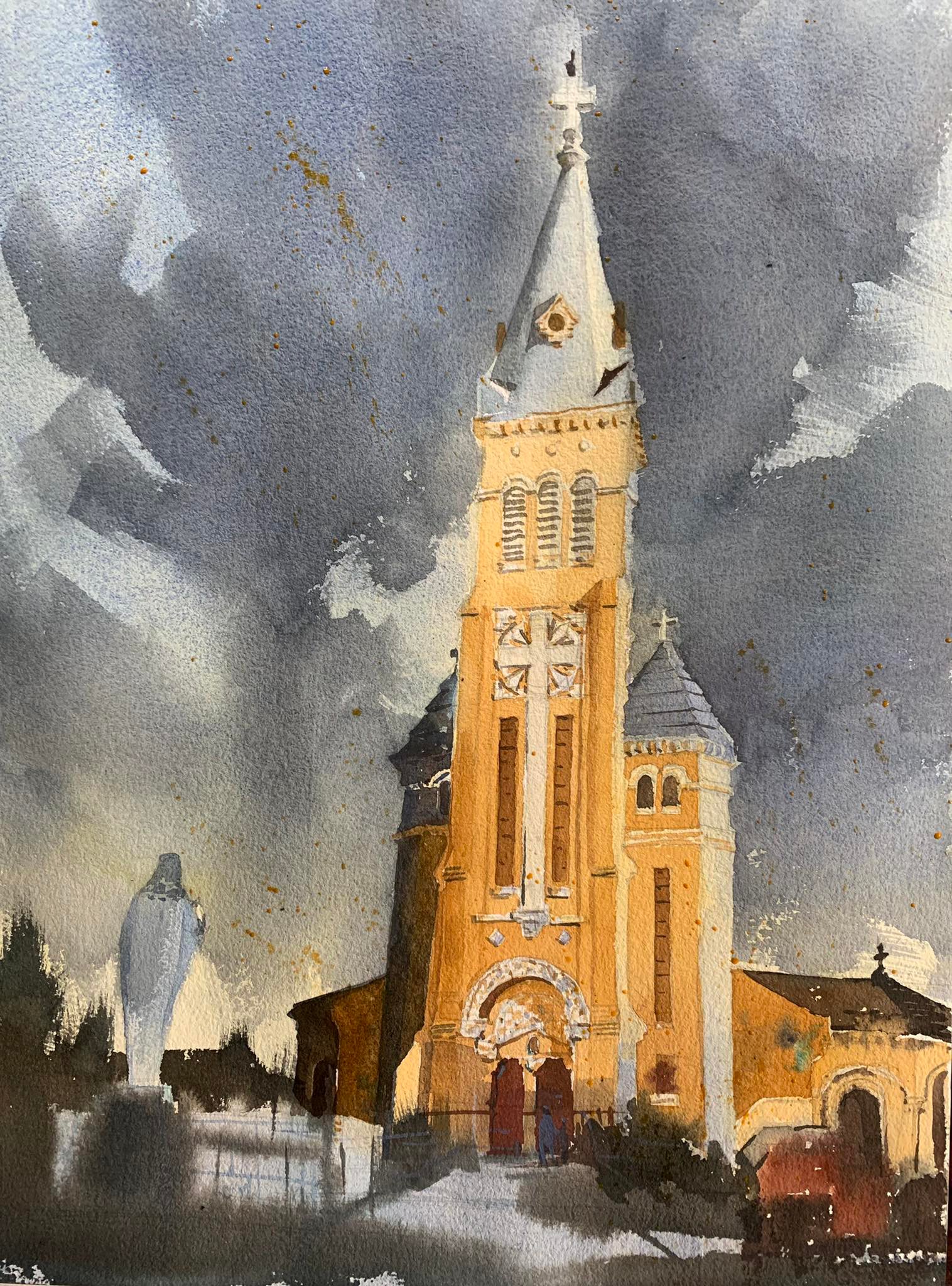
Sketches by architect Nguyen Khanh Vu
(*) The Romanesque architectural style emerged around the 11th and 12th centuries, mainly in France, England, Belgium, Italy, and Spain.
Source link
































































































![OCOP during Tet season: [Part 3] Ultra-thin rice paper takes off.](/_next/image?url=https%3A%2F%2Fvphoto.vietnam.vn%2Fthumb%2F402x226%2Fvietnam%2Fresource%2FIMAGE%2F2026%2F01%2F28%2F1769562783429_004-194121_651-081010.jpeg&w=3840&q=75)







Comment (0)